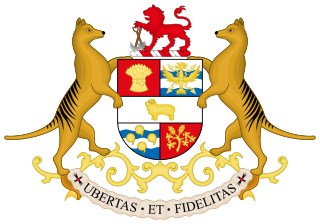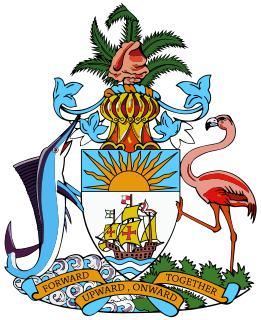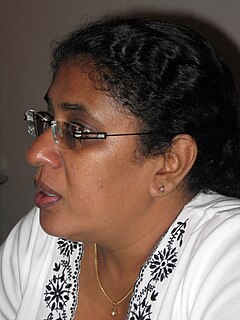
A justice of the peace (JP) is a judicial officer of a lower or puisne court, elected or appointed by means of a commission to keep the peace. In past centuries the term commissioner of the peace was often used with the same meaning. Depending on the jurisdiction, such justices dispense summary justice or merely deal with local administrative applications in common law jurisdictions. Justices of the peace are appointed or elected from the citizens of the jurisdiction in which they serve, and are usually not required to have any formal legal education in order to qualify for the office. Some jurisdictions have varying forms of training for JPs.

Judiciary of Malaysia is largely centralised despite Malaysia's federal constitution, heavily influenced by the English common law, as well as Islamic jurisprudence.

The Judiciary of the Hong Kong Special Administrative Region is the judicial branch of the Hong Kong Special Administrative Region. Under the Basic Law of Hong Kong, it exercises the judicial power of the Region and is independent of the executive and legislative branches of the Government. The courts in Hong Kong hear and adjudicate all prosecutions and civil disputes, including all public and private law matters.

The Supreme Court of Tasmania is the highest State court in the Australian State of Tasmania. In the Australian court hierarchy, the Supreme Court of Tasmania is in the middle level, with both an appellate jurisdiction over lower courts, and decisions made by Court to be heard on appeal by the High Court of Australia.

The Supreme Court of Sri Lanka (Tamil: இலங்கை உயர் நீதிமன்றம் Ilankai uyar neetimanram) is the highest court of Sri Lanka. The Supreme Court is the highest and final judicial instance of record and is empowered to exercise its powers, subject to the provisions of the Constitution. The Court has ultimate appellate jurisdiction in constitutional matters, and take precedence over all lower Courts. The Sri Lanka judicial system is complex blend of both common-law and civil-law. In some cases such as capital punishment, the decision may be passed on to the President of the Republic for clemency petitions.

The judicial system of Israel consists of secular courts and religious courts. The law courts constitute a separate and independent unit of Israel's Ministry of Justice. The system is headed by the President of the Supreme Court and the Minister of Justice.

The High Court of the Republic of Singapore is the lower division of the Supreme Court of Singapore, the upper being the Court of Appeal. It consists of the Chief Justice of Singapore and the Judges of the High Court. Judicial Commissioners are often appointed to assist with the Court's caseload. There are two specialist commercial courts, the Admiralty Court and the Intellectual Property Court, and a number of judges are designated to hear arbitration-related matters. The seat of the High Court is the Supreme Court Building.

The High Court of Justice of the Isle of Man is governed by the High Court Act 1991. There are four permanent judges of the High Court:
The Children’s Court of Victoria is a statutory court created in Victoria, Australia. The court deals with criminal offences committed by children aged between 10 and 17 and with proceedings concerning children under the age of 17 relating to the care and protection of children.
This article concerns the legal mechanisms by way of which a decision of an England and Wales magistrates' court may be challenged. There are four mechanisms under which a decision of a magistrates' court may be challenged:
Sarath Ambepitiya was a Sri Lankan jurist. He was serving as the Judge of the Colombo High Court when he was assassinated. The assassination, orchestrated by a drug lord sentenced by the Judge, gripped the nation and forced the government to crack down on organized crime.

The Code of Criminal Procedure is the main legislation on procedure for administration of substantive criminal law in India. It was enacted in 1973 and came into force on 1 April 1974. It provides the machinery for the investigation of crime, apprehension of suspected criminals, collection of evidence, determination of guilt or innocence of the accused person and the determination of punishment of the guilty. Additionally, it also deals with public nuisance, prevention of offences and maintenance of wife, child and parents.

The basis of the Bahamian Law and legal system lies within the English Common Law tradition. Justices of the Supreme Court, Registrars and Magistrates are all appointed by The Governor-General acting on the advice of the Judicial and Legal Service Commission, which is composed of five individuals who are headed by the Chief Justice as their chairman. The Chief Justice and the Justices of the Court of Appeal, including the President, are appointed by the Governor-General on the recommendation of the Prime Minister after consultation with the Leader of the Opposition. Once appointed, the salaries and other terms of appointment of the Chief Justice, Justices of Appeal and Justices of the Supreme Court cannot be altered to their disadvantage. Justices of the Supreme Court can serve until the age of 65 years and, where agreed among the judge, the Prime Minister and the Leader of the Opposition, may serve until the age of 67. Justices of Appeal can serve until the age of 68 years and, where agreed among the judge, the Prime Minister and the Leader of the Opposition, may serve until the age of 70 years. The law of The Bahamas makes provisions for the appointment of 12 Justices to the Bench of the Supreme Court, inclusive of the Chief Justice, and for five Justices of the Court of Appeal, inclusive of the President. The Chief Justice, as Head of the Judiciary, is an ex officio member of the Court of Appeal, but only sits at the invitation of the President.
Joseph Asoka Nihal De Silva was the 42nd Chief Justice of Sri Lanka.
The Judiciary of Sri Lanka are the civil and criminal courts responsible for the administration of justice in Sri Lanka. The Constitution of Sri Lanka defines courts as independent institutions within the traditional framework of checks and balances. They apply Sri Lankan Law which is an amalgam of English common law, Roman-Dutch civil law and Customary Law; and are established under the Judicature Act No 02 of 1978 of the Parliament of Sri Lanka.
Justice Kankanithanthri T. Chitrasiri is a sitting Puisne Justice of the Supreme Court of Sri Lanka who was appointed by President Maithripala Sirisena in 2016 to replace Justice Rohini Marasinghe. He was Justice of the Court of Appeal of Sri Lanka, Judge of the High Court and a Magistrate.
The High Court in Sri Lanka is the only court which exercises the jurisdiction of the court of first instance and the appellate jurisdiction with both civil and criminal jurisdiction.
The District Courts in Sri Lanka are lower courts headed by a District Judge who is vested with original civil jurisdiction. In metropolitan areas such as Colombo there are multiple District Courts in one location.














